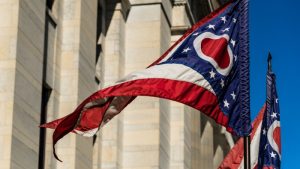Maryland’s Department of Information Technology (DoIT) has rolled out Google Workspace with Gemini across 59 agencies, giving almost 43,000 state employees access to generative artificial intelligence (AI) tools, and 12,500 are active users, according to a press release.
Everyone knows that artificial intelligence (AI) can improve efficiency and productivity – but how do you get started and get your team excited about it? Several city and state officials have an answer: Get your team trained and find those who are excited about it.
The rise of artificial intelligence (AI) in K-12 schools has accelerated, with 46% of teachers indicating it was generally permitted in the 2024-2025 school year, up from 36% in the previous school year, according to a national survey of teachers, parents, and students conducted by the nonpartisan, nonprofit Center for Democracy and Technology (CDT).
New York University (NYU) announced on Oct. 23 the launch of the NYU Quantum Institute (NYUQI), a research hub that aims to unlock discoveries and applications of quantum information sciences.
Old Dominion University (ODU) partnered with Google Public Sector to launch MonarchSphere, an artificial intelligence (AI) incubator that will embed AI across research, teaching, operations, and workforce programs. According to university officials, the effort aims to accelerate discovery, personalize learning, and expand micro-credentials tied to in-demand skills.
The University of Nevada, Las Vegas (UNLV) already exceeded enrollment predictions for its new online bachelor’s degree in cybersecurity, which launched in the fall semester, and expects increased demand in the spring and fall of 2026, according to the university.
For the first time in years, the United States is no longer making progress in bolstering its cyber defenses and is instead “stalling” and “slipping” in its ability to protect itself and allies, the successor organization to the U.S. Cyberspace Solarium Commission (CSC) revealed in a report published Wednesday.
Ohio Gov. Mike DeWine last week signed a new law – dubbed Keith’s Law – expanding Ohio’s communication disability database to include all individuals with disabilities and connecting it to countywide 911 systems to aid first responders during emergencies.
Sen. Deb Fischer, R-Neb., on Thursday voiced her support of the Broadband Equity, Access, and Deployment (BEAD) program, while criticizing recent changes to the program that she said have minimized Nebraska’s ability to deploy fiber-based broadband.
Lincoln Public Schools (LPS) students will soon be able to connect across the city thanks to an expanded fiber-optic broadband internet program.













